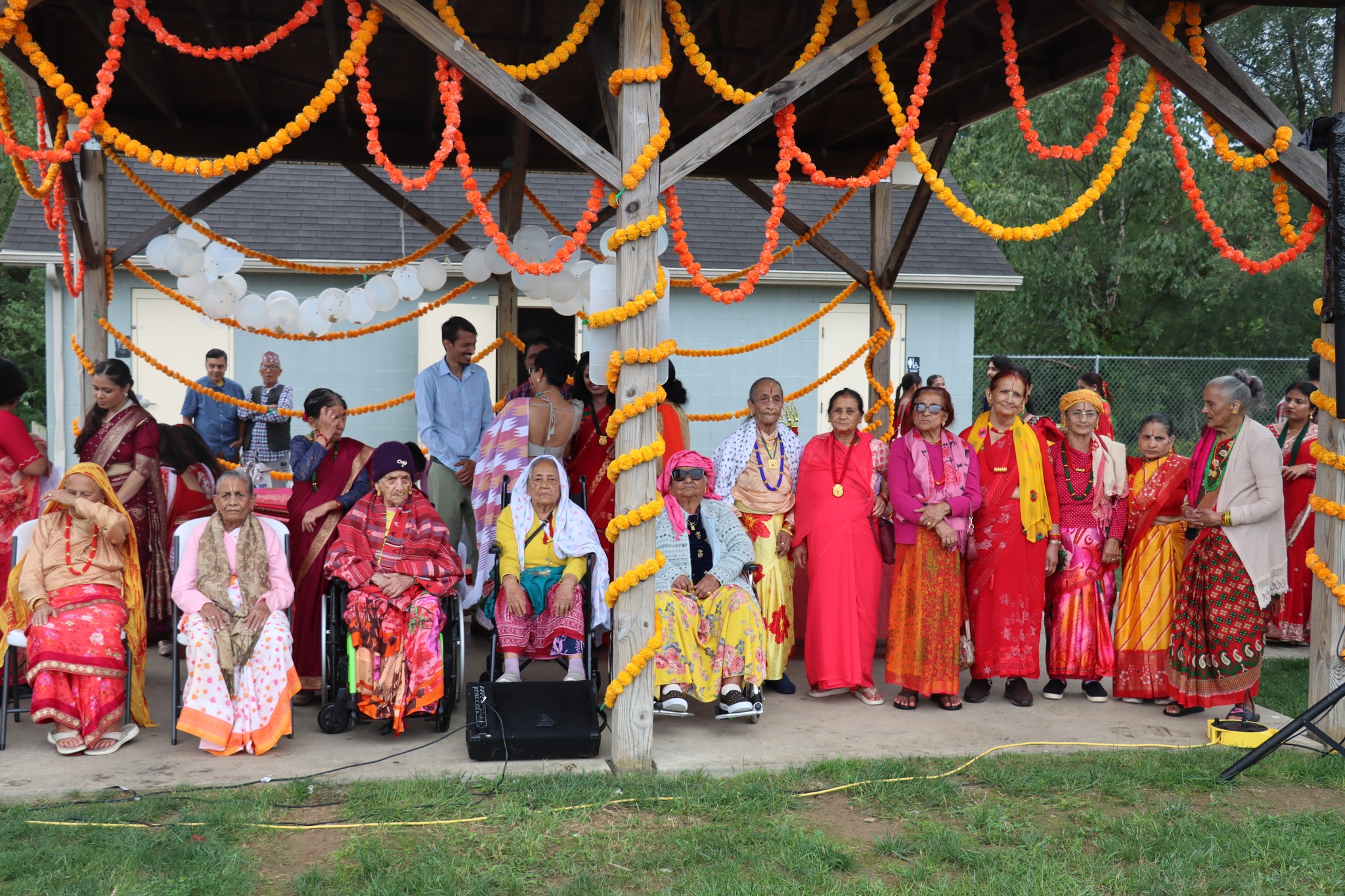Central Pennsylvania has recently become home to one of the largest ethnic-Nepali Bhutanese populations in the United States, and poor mental health has become a pressing concern among this community. Older adults, in particular, may be experiencing depression, anxiety, or post-traumatic stress disorder due to forced relocation and other related traumatic experiences.
To improve the mental health of this population, Rochelle Frounfelker, an assistant professor in the Department of Community & Population Health within the College of Health, is embarking on a new community-based participatory research study with the Bhutanese community in Pennsylvania. Frounfelker, whose primary area of research addresses mental health disparities among refugees and other war-affected populations, has received a grant from the National Institute on Aging (NIA), one of the 27 institutes of the National Institutes of Health (NIH).
The project is entitled “The Impact of Forced Displacement on Aging Adult Mental Health: Implications for Developing Interventions.” According to Frounfelker, the project’s overall goal is ultimately “to use the information and the data we’re going to get to inform ways that we can culturally adapt existing mental health interventions for older adults to make it culturally appropriate to people in this community.”
Specifically, the study will examine how the mental health of these older individuals has been affected by their life experience as a refugee. What is the relationship between their past experiences and their current mental health? How has their mental health changed over time, and what is the relationship between an older individual’s mental health with their caregiver’s mental health?
Tej Mishra is the Executive Director of the Bhutanese Community in Harrisburg (BCH), the group’s leading civic organization, as well as the co-investigator of the study. In a joint interview with Frounfelker, he says the political and cultural persecution in the late ’80s and early ’90s of ethnic-Nepalis in Bhutan forced this community out of their country and into refugee camps in Nepal, where they remained for the next 14–18 years. Beginning in 2008, many individuals were resettled in the United States through the Refugee Resettlement Program.
Due to favorable socioeconomic factors, the Bhutanese population in Harrisburg has multiplied rapidly. The area is now home to about 45,000 former refugees, about half of the entire ethnic-Nepali Bhutanese population that was resettled in the United States.
According to Mishra, mental health struggles have become very prevalent in the community, and problems broke out as the community grew so quickly. “We’re trying to address mental health and other community issues in a more proactive way,” he said, “identifying community needs and reaching out to resources outside the community to connect the needs.”
A community-based participatory research approach strives for a true partnership with the people in the community, involving them in every aspect of the project, from grant writing, designing the study, conducting research and analyzing the data. By designing services in collaboration with this community, the hope is that they will be more effective and appealing to the community because you’ve constructed them with their input, Frounfelker said.
The mixed methods research project will include qualitative research, looking at social support for this age group, which will inform a quantitative survey. In addition, the longitudinal component of the study will ask about 400 community members to respond to mental health assessments three times throughout the life of the grant, then quantifying and analyzing the relationship between these variables over time.
In addition to designing culturally appropriate services to support the mental health of this community, Frounfelker and Mishra are thinking about the study’s broader impact.
“Are there things that could be generalizable that we find that might be appropriate and applicable to other refugee populations in the US?” asked Frounfelker. “What are we anticipating in terms of the size of our immigrant population in 20-30 years from now? This is a growing population that we need to be thinking about as we move forward with issues of aging.”
